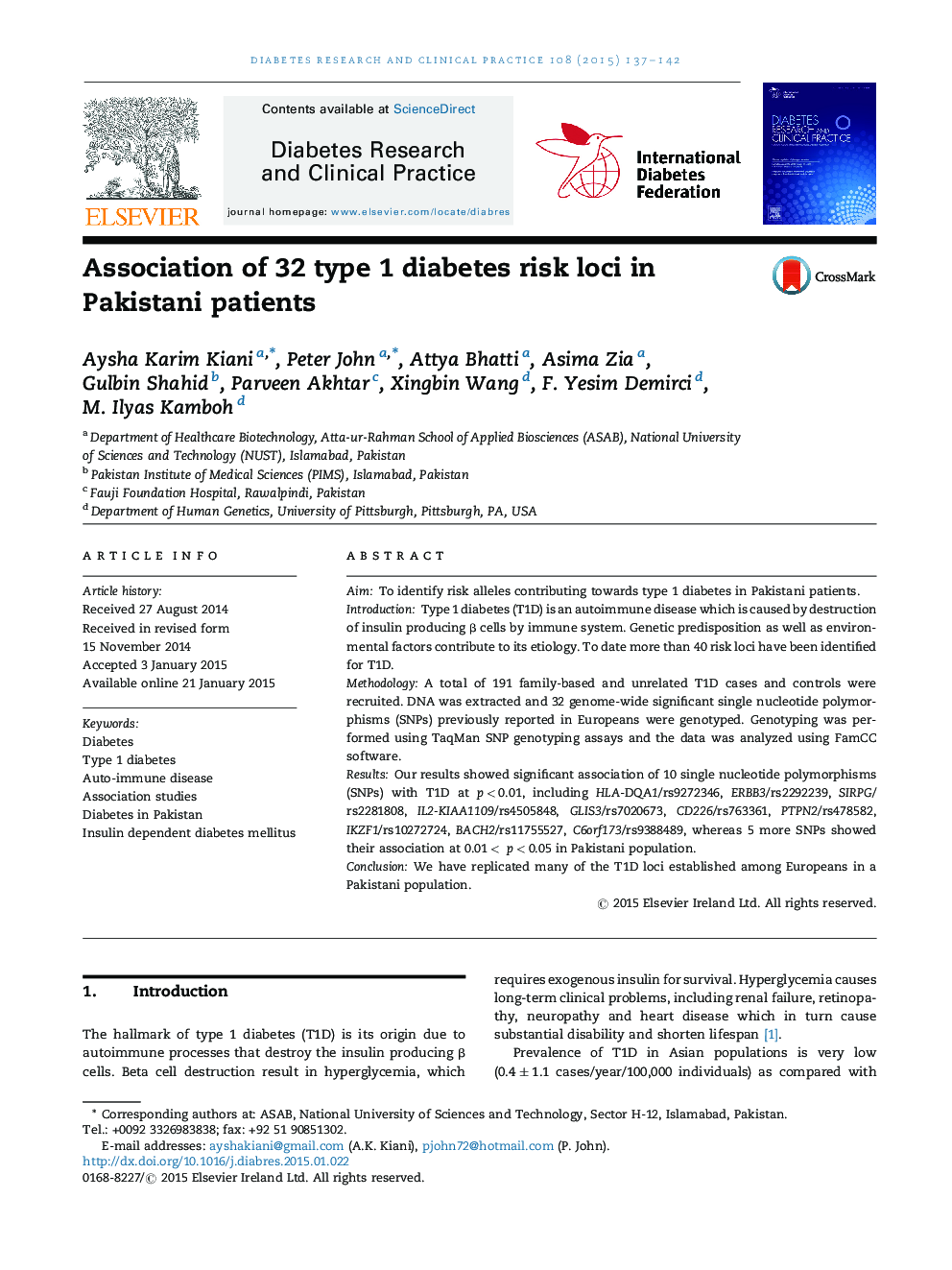| Article ID | Journal | Published Year | Pages | File Type |
|---|---|---|---|---|
| 5899347 | Diabetes Research and Clinical Practice | 2015 | 6 Pages |
â¢First genetic study of T1D in Pakistani subjects.â¢Evidence of T1D risk loci.â¢Shared T1D loci between Caucasians and Pakistani.
AimTo identify risk alleles contributing towards type 1 diabetes in Pakistani patients.IntroductionType 1 diabetes (T1D) is an autoimmune disease which is caused by destruction of insulin producing β cells by immune system. Genetic predisposition as well as environmental factors contribute to its etiology. To date more than 40 risk loci have been identified for T1D.MethodologyA total of 191 family-based and unrelated T1D cases and controls were recruited. DNA was extracted and 32 genome-wide significant single nucleotide polymorphisms (SNPs) previously reported in Europeans were genotyped. Genotyping was performed using TaqMan SNP genotyping assays and the data was analyzed using FamCC software.ResultsOur results showed significant association of 10 single nucleotide polymorphisms (SNPs) with T1D at p < 0.01, including HLA-DQA1/rs9272346, ERBB3/rs2292239, SIRPG/rs2281808, IL2-KIAA1109/rs4505848, GLIS3/rs7020673, CD226/rs763361, PTPN2/rs478582, IKZF1/rs10272724, BACH2/rs11755527, C6orf173/rs9388489, whereas 5 more SNPs showed their association at 0.01 < p < 0.05 in Pakistani population.ConclusionWe have replicated many of the T1D loci established among Europeans in a Pakistani population.
